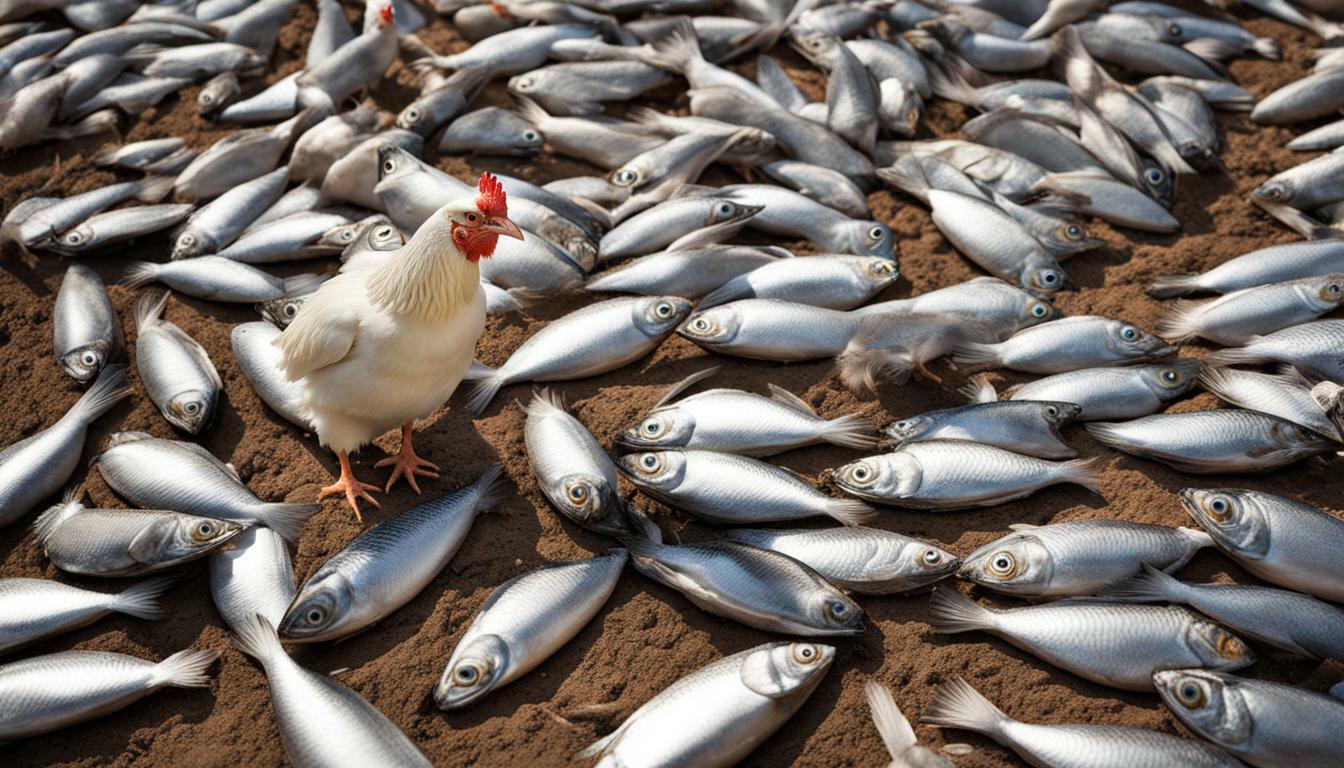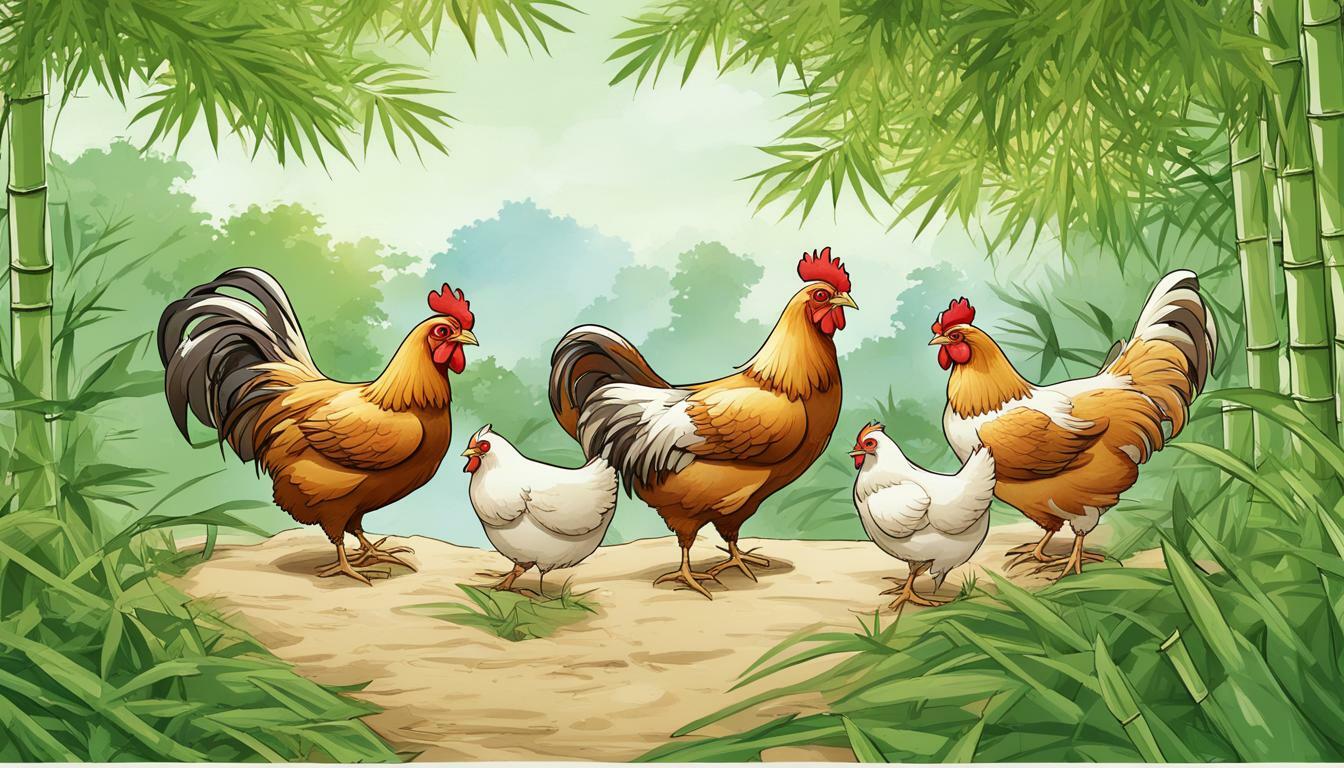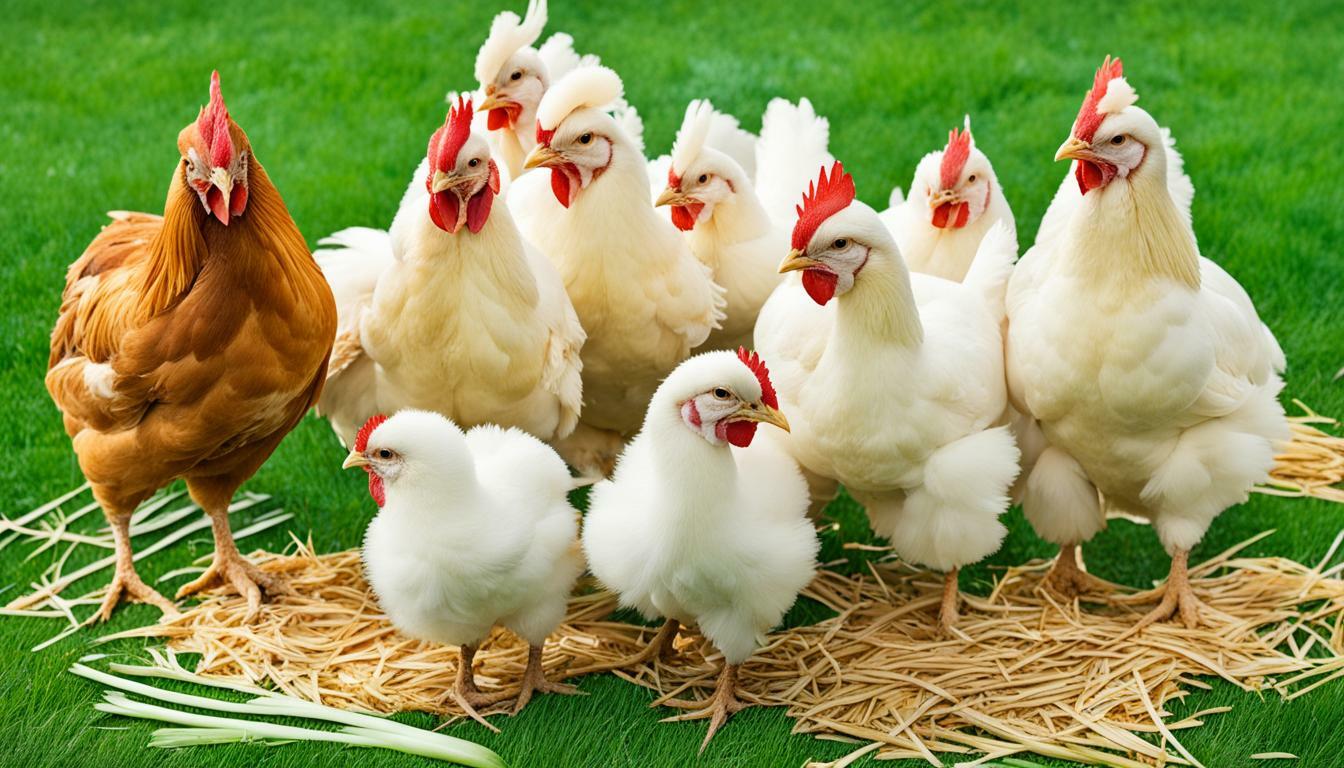Can Chickens Eat Sardines? Discover the Surprising Answer!

Table of content:
- Is it okay to feed chickens sardines?
- What happens if you feed chickens sardines?
- Are sardines healthy for chickens?
- Do chickens like eating sardines?
- Can you feed chickens canned sardines?
- Is too much sardine bad for chickens?
- How often can chickens eat sardines?
- What are the benefits of feeding sardines to chickens?
- Should I remove sardine bones before feeding chickens?
- Are there any risks to feeding chickens sardines?
- Final Thoughts
Sardines are small, oily fish that are nutrient dense and full of healthy fats and protein. Chickens enjoy eating fish and insects as part of their natural diet. As a supplement to their regular feed, sardines can provide great health benefits. However, there are some important things to consider before feeding sardines to your flock.
Is it okay to feed chickens sardines?
Yes, it is perfectly fine to feed chickens sardines in moderation. Sardines are a great source of protein, healthy fats, vitamins, and minerals. Many experts recommend feeding chickens oily fish like sardines 1-2 times per week. The omega-3 fatty acids, vitamin D, vitamin B12, calcium, and phosphorus in sardines are all beneficial to chickens’ health. Just be sure not to overfeed them.
What happens if you feed chickens sardines?
Feeding chickens sardines can have several benefits:
- Improved egg quality and production. The omega-3s promote good egg quality, while the protein aids egg production.
- Healthier feathers. The omega-3s support feather growth and appearance.
- Increased calcium and phosphorus for bone health. Sardines are a great source of these minerals.
- A shiny coat and bright red comb and wattles. This indicates good health.
- More energetic and active chickens. The protein gives them a boost.
If fed too often, sardines could cause loose droppings or diarrhea. But in moderation, sardines are a healthy supplemental food.
Are sardines healthy for chickens?
Yes, sardines are a very healthy food for chickens! Sardines provide:
- High-quality protein – supports growth and egg production
- Omega-3 fatty acids like DHA and EPA – reduce inflammation and improve feathers
- Vitamin D – for calcium absorption and immunity
- Vitamin B12 – important for energy metabolism
- Calcium and phosphorus – for strong bones and eggshells
- Selenium – an antioxidant that supports immunity
Sardines also contain iron, potassium, magnesium, and zinc. The oily meat offers more nutrition than chicken feed alone. In moderation, they make an excellent supplement.
Do chickens like eating sardines?
Most chickens love eating sardines! The strong taste and smell of oily fish really seem to appeal to their senses.
Chickens are omnivores and in the wild eat insects, small fish from streams, reptiles, and more. So they appreciate meaty treats like sardines to supplement their standard grain diet.
You’ll often see chickens eagerly pecking and crowding around when offered sardines. They get excited and will fill up on this appetizing, nutrient-dense food. It’s a great way to give them something different from plain chicken feed.
Can you feed chickens canned sardines?
Yes, you can safely feed chickens canned sardines. Canned fish with bones like sardines are a handy way to provide the benefits of fresh fish without the need to cook, debone, and chop it up yourself.
When choosing a brand of canned sardines, look for varieties packed in water rather than oil. The sardines canned in oil contain quite a bit of added salt. Go for low-sodium options.
Drain the water or oil before feeding canned sardines to chickens. You can mash them up a bit to make them easier for the chickens to eat. Canned sardines offer an easy protein-packed snack.
Is too much sardine bad for chickens?
It’s fine to feed chickens sardines regularly, but too much can cause problems. Sardines are very rich, so overdoing it can lead to:
- Excessive fat intake
- Loose droppings
- Diarrhea
- Reduced appetite for normal feed
- Nutritional imbalances
For best results, limit sardines to 1-2 times per week as a supplement. Feed just a few sardines per chicken at each feeding and provide their regular feed as well.
Moderation is key. While sardines provide great benefits, more than 2-3 times a week may be counterproductive. Monitor your flock’s droppings for any digestive issues.
How often can chickens eat sardines?
Most experts recommend feeding chickens sardines and other oily fish no more than 1-2 times per week. A few sardines 1-2 times weekly is sufficient to provide health benefits.
Here are some guidelines on sardine feeding frequency for chickens:
- Adult chickens can eat sardines 1-2 times per week
- Chicks should only have small sardine pieces once they are fully feathered
- Broody hens benefit from sardines to regain condition after sitting
- Molting chickens can have sardines 2 times per week for nutrients
- Free range chickens that forage a lot may only need sardines once a week
Monitor your flock and adjust as needed. But as a general rule, 1-2 times weekly is ideal for supplementing their diet with sardines’ valuable nutrients and oils.
What are the benefits of feeding sardines to chickens?
Feeding chickens sardines provides many excellent benefits:
- Omega-3 fatty acids like DHA and EPA reduce inflammation and support good overall health
- High levels of protein aid growth, egg production, and muscle maintenance
- Calcium and phosphorus in bones strengthen eggshells and bones
- Vitamin D improves calcium absorption and immunity
- Vitamin B12 assists with energy metabolism
- Selenium, iron, potassium, magnesium, and zinc increase diet diversity
- Oily fish improves feather condition and appearance
- Chickens enjoy the taste as a treat from standard feed
The rich array of vitamins, minerals, and healthy fats makes sardines a superfood for chickens. In moderation, they make the perfect supplement to a balanced diet.
Should I remove sardine bones before feeding chickens?
You don’t necessarily need to remove the small soft bones in sardines before feeding them to chickens. Chickens have no problem digesting the small bones for extra calcium intake.
However, you may want to lightly mash the sardines to prevent the chickens from choking on larger bones. Gentle mashing allows the chickens to safely swallow the small fish bones.
If you are concerned about bones or your chickens seem to struggle with them, simply remove the backbone and larger bones first. The rest of the small bones can be left in for added nutrition. Just monitor to ensure the bones don’t pose a risk.
Are there any risks to feeding chickens sardines?
Feeding chickens sardines is generally quite safe, but there are a couple of risks to be aware of:
- Too much fat/oil – This can cause diarrhea, so moderation is key.
- Excess salt – Canned sardines may contain added salt, so look for low-sodium varieties.
- Bones – Large, sharp bones could pose a choking hazard if not mashed up.
- Biotoxins – With fish from the ocean, algal blooms can cause toxins to accumulate in fish. This is very rare, but be sure to buy reputable brands.
- Mercury or pollutants – Larger predatory fish accumulate more toxins. But tiny sardines are very low risk.
As long as you feed sardines in moderation, choose low-sodium canned varieties, lightly mash the fish and bones, and buy from reputable sellers, sardines are a safe supplemental food for chickens. The benefits far outweigh the minimal risks.
Final Thoughts
Sardines can be a healthy and enjoyable supplemental food for backyard chicken flocks. These small, oily fish provide many essential vitamins, minerals, omega-3s, protein, and more. Chickens benefit from sardines 1-2 times weekly.
Feeding a few sardines per chicken is ideal to provide benefits without overdoing it on the rich fish. Be mindful of salt content with canned varieties and lightly mash bones for safety. Overall, this fishy snack is a nutritious and appreciated addition to most chickens’ diets in moderation.
Welcome. I’m Adreena Shanum, the proud owner of this website, and I am incredibly passionate about animals, especially poultry. I founded adreenapets.com as a labor of love, stemming from my desire to share my knowledge and experiences with poultry enthusiasts worldwide.




